Coming Last But Winning at Life in Sapa Vietnam
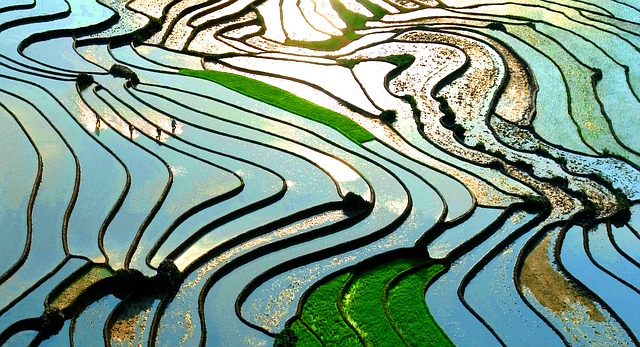
I have weak ankles and I take tentative steps. When traveling with my much more sure-footed friend in Sapa, a mountain town in Northern Vietnam, I had mentally prepared to see more of my boots than of the rolling rice paddies around us.
Our sojourn to Sapa had begun far south, in Ho Chi Minh City. We had traversed urban sprawl and rolling sand dunes and, traveling on the thinnest shoestring budget, several grueling fifteen-hour train rides and a handful of teeth-rattling night buses. We had spent the entirety of our trip making day-by-day plans. Most evenings, we would squat on child-sized blue chairs and sip Saigon beer while strategizing for the next 24-hours. Sapa was no different.
Coming Last But Winning at Life in Sapa Vietnam.
We knew we wanted to trek through the rice paddies the region is famous for and stay in a homestay with a Hmong family. These seemed like simple goals, but our nightly Google search revealed that there were dozens of companies offering these experiences, complete with various levels of luxury at assorted price points. A bit of searching and some crowdsourcing from other friends later, we decided to not book anything. Instead, we would catch a night bus to Sapa, and upon arriving we would haggle with a Hmong women who met arriving buses. Settled. We turned off our phones and went back to our twenty-five cent beer.
We got to Sapa in the middle of the night; the bus kept running and everyone slept on till the sky turned a murky grey in anticipation of sunrise. When the old Greyhound finally puffed out a long sigh and hissed open the doors, my friend and I groggily gathered our packs and trundled off to be greeted by something akin to organized chaos.
About two-dozen Hmong women and children—mostly girls—gathered around the bus. They wore brightly embroidered clothing, which I later learned was hand-made predominately from hemp, and spoke to wide-eyed backpackers with the authoritative fierceness of people who had done this before. Some folks had booked tours already and scrambled around to find their guides; others were like us and had prepared to hustle and haggle for the best deal on-site.
Ger and I walked sometimes in silence, but more often engaged in heavy conversations about family, about giving birth after a day working in paddy fields, and about how she mastered English through her interactions with tourists.
It didn’t take long before a particularly short woman and three teenage girls approached us. The woman’s smile practically split her face in half, and negotiating a price for two days of trekking, one night in her homestay, all our food, and motorbikes back down the mountains happened swiftly. Ger tied pink and orange bracelets on our wrists to mark us as taken, and we joined the other five people she was leading and headed off for the mountains.
As we hiked out of town I held my own, but at the first sight of a rocky, rooty incline I slowed. It was my feet and me and I could feel the others in the group passing by. Well, not everyone passed me. While I focused and fumbled in my sturdy hiking boots and sweat-wicking yoga pants, Ger walked beside me in crumbling flip-flops and layers of dark, hand-woven hemp. As the hours passed and I peeled off a sweatshirt, a long-sleeve shirt, and a t-shirt, Ger merely opened her umbrella, which she’d been using as a walking stick, to shield herself from the sun.
“You’re not even sweating,” I laughed as I wiped my own glistening face with a bandana. “And you’re wearing all black too!”
Coming Last But Winning at Life in Sapa Vietnam.
Ger threw her head back and cackled, “But it is not all black. I wear indigo,” she corrected. She tapped my wrist to tell me to stop walking and knelt beside a small plant. “You take this and roll it between your hands for a long time. It will stain your hands blue; that is indigo. We dye clothing with this many times and it looks black. If you stay here long, you can have blue hands like us,” she said with a sly smile as I rolled the plant and stumbled over a root.
Hours wore on and Ger and I remained, unfailingly, at the back of the pack. I’m familiar with these hours; I’ve had them on other hikes, being so far behind the group that I feel entirely on my own. I typically admonish any offers asking to hang back with me, but on that mountain on that day, Ger didn’t ask to stay and I didn’t ask her to leave. We walked sometimes in silence, but more often engaged in heavy conversations about family, about giving birth after a day working in paddy fields, and about how she mastered English through her interactions with tourists.
We spent the next two days cooking, eating, drinking rice wine, and learning. Ger was full of global knowledge, despite having never left the mountain town she was born in.
I asked her about her children—the ones that had been with her at the bus station—and if there was a school in their village at the top of the mountain. “No,” she said. “They take motorbikes every day to Sapa because they must go to school.”
“There isn’t any place closer?” I asked.
She smiled wryly. “I speak English but cannot read or write. They must learn more than me; our lives are changing. They are the first to go to school and they will finish,” she said with finality. We nodded at each other in acknowledgement of this truth.
At the top of the mountain, we reached Ger’s home. It was a solid wooden structure that overlooked the village below and the mountain range in the distance. Here, we spent the next two days cooking, eating, drinking rice wine, and learning. Ger was full of global knowledge, despite having never left the mountain town she was born in. At the end of our homestay, my friend and I rummaged through our bags for loose coins from our travels to give to Ger. Her father melted them down to make metal wrist cuffs to sell to tourists. When she put our packs and us on the backs of motorbikes driven by her cousins, she touched her hand to my face and smiled. “Tell your friends,” she said.
Coming Last But Winning at Life in Sapa Vietnam.
I’m sure Ger will lead countless other young backpackers through the mountains of Sapa. I hope all of them stay on her spare bed, get giggly drunk on her homemade rice wine, and talk about midwifery late in to the night. I also hope at least a few of them have weak ankles and are lucky enough to soak in some of this remarkable woman’s wisdom. That mountain in Sapa remains the only trek that I feel I didn’t do alone.
Ger showed me how much there is to learn in being separated from the group. That arriving first doesn’t make you stronger or smarter or braver. If you can trek the mountain at your own pace, being open to learning and changing along the way, the arrival is even sweeter.
Photo for Coming Last But Winning at Life in Sapa Vietnam by Pixabay.



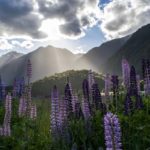
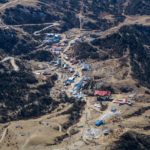
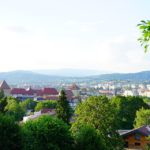

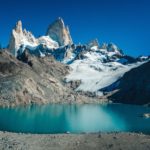
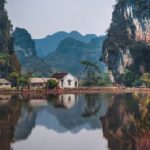
I wish you could provide a bigger image so that I could show it better on my non-profit blog.